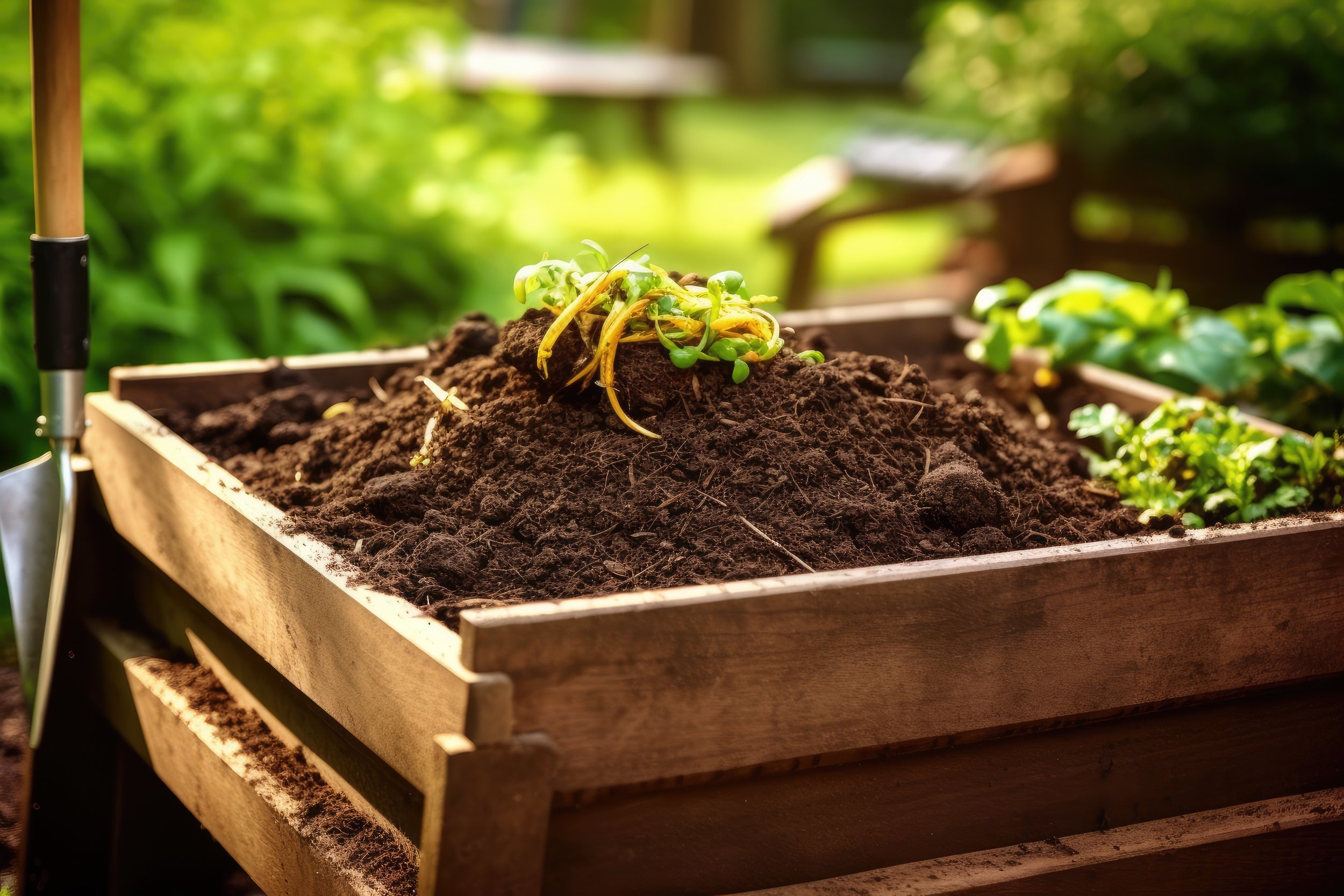
What is Composting?
Cultivating Sustainability, Nourishing Communities.
At The 6th Branch, we believe in the power of composting to transform waste into opportunity, to regenerate our soil, and to foster community resilience. Composting is not just a means of waste management – it's a vital tool for building healthier, more sustainable neighborhoods and promoting environmental equity.
That’s Greenmount Compost Factory.
By embracing composting as a fundamental practice, we can cultivate sustainability, nourish our communities, and work towards a brighter, more equitable future for all. Join us in harnessing the power of composting to create positive change in Baltimore and beyond. Together, we can cultivate a healthier, more resilient world for generations to come.
-
Composting is a natural process that harnesses the power of decomposition to break down organic materials into nutrient-rich soil amendments. It begins with collecting organic waste materials, such as food scraps, yard trimmings, and paper products, which are then mixed together in a compost pile or bin. As these materials decompose, they are broken down by microorganisms, bacteria, and fungi, transforming into humus – a dark, crumbly substance that resembles soil.
-
Balance of Materials: A successful compost pile requires a balanced mix of green (nitrogen-rich) and brown (carbon-rich) materials. Green materials include kitchen scraps, grass clippings, and fresh plant trimmings, while brown materials include dried leaves, straw, and cardboard.
Aeration and Moisture: Microorganisms that drive the composting process require oxygen to thrive. Regularly turning or aerating the compost pile helps ensure proper airflow. Additionally, maintaining a moist but not soggy environment is essential for microbial activity.
Temperature Control: Composting generates heat as microorganisms break down organic matter. To facilitate decomposition, it's important to monitor and maintain an optimal temperature range (typically between 120°F and 160°F) within the compost pile.
Time and Patience: Composting is a gradual process that takes time. Depending on environmental conditions and the materials used, composting can take anywhere from a few months to a year to produce finished compost. Our product typically takes four months to complete the whole process depending on the weather.
-
Composting offers a multitude of benefits for both individuals and communities:
Soil Health: Compost is a natural fertilizer that enriches soil with essential nutrients, improves soil structure, and enhances water retention. By incorporating compost into gardens, urban green spaces, and agricultural fields, we can promote healthier plant growth and reduce the need for synthetic fertilizers.
Waste Reduction: Composting diverts organic waste from landfills, where it would otherwise decompose anaerobically and produce methane – a potent greenhouse gas. By composting organic materials, we reduce greenhouse gas emissions and minimize our environmental footprint.
Community Empowerment: Composting fosters community engagement and empowerment by providing opportunities for individuals to take an active role in environmental stewardship. Whether through community composting programs at an urban farm like GCF or something else, composting brings people together to create positive change.
Equity and Justice: Access to healthful food and green spaces is essential for building equitable communities. Composting promotes food justice by improving soil fertility and supporting urban agriculture, making fresh, nutritious food more accessible to residents of all backgrounds.
